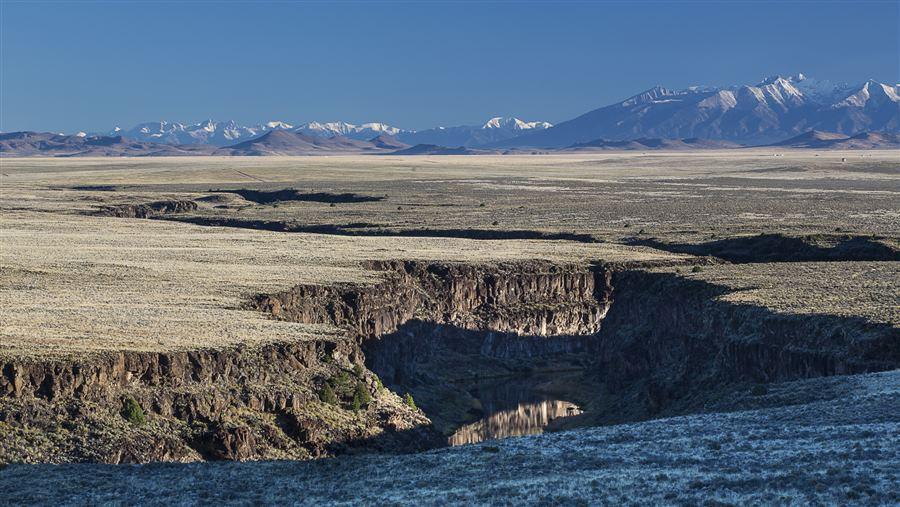Pew: Review of Monument Designations Should Be Open And Transparent
Antiquities Act empowers presidents to protect our heritage

Volcanic cones, vast plains, and steep canyons give way to an 800-foot-deep gorge in the Río Grande del Norte National Monument in New Mexico.
© Bob Wick, Bureau of Land Management
WASHINGTON—The Pew Charitable Trusts called for "an open and transparent process" as President Donald Trump signed an executive order today directing the Department of the Interior to review national monuments designated since 1996 and to suggest changes or modifications to the monument proclamations.
Tom Wathen, vice president of Pew’s environment Americas initiative, issued the following statement:
"Monument designation under the Antiquities Act is one of the most significant tools a president has to preserve our country’s natural, historic, and cultural treasures. It allows a sitting president to conserve exceptional sites. This authority entrusted to the president has protected priceless pieces of our nation’s cultural and natural heritage.
"National monuments designated through the Antiquities Act include 157 of the most treasured natural, historic, and cultural sites across the country—places that not only hold special value for millions of Americans, but in many cases also bring significant economic gains to the communities that surround them.
"The president’s call for an Interior Department review of monuments proclaimed since 1996 is unprecedented. That’s why it’s vitally important that the administration engage in an open and transparent process; that it encourage citizen input about the influence of monuments on nearby communities; and that it listen to the views of sportsmen, scientists, business leaders, Native Americans, conservationists, recreational users, and members of the faith community who are closely tied to these protected areas.
"Since President Theodore Roosevelt signed the Antiquities Act into law in 1906, eight Republican and eight Democratic presidents—including Presidents Clinton, Bush, and Obama, whose designations President Trump has now placed under review—have used this visionary legislation to protect iconic places such as the Grand Canyon and the Statue of Liberty, cultural treasures that preserve battlefields and ancestral Native American sites, locations that honor the struggle for freedom and equality of generations of immigrants and minorities, and lands and waters that serve as critical wildlife habitats and sources of clean water.
"President Trump and Interior Secretary Ryan Zinke have each expressed admiration for the approach to governing and conservation of President Theodore Roosevelt, who protected roughly 230 million acres of public land through national forest, national park, national game preserve, and national monument designations. As we have with President Trump’s and Secretary Zinke’s predecessors, Pew will provide research and recommendations in support of the conservation values of previous designations and of additional special places that may be considered."
The Pew Charitable Trusts is driven by the power of knowledge to solve today’s most challenging problems. Learn more at pewtrusts.org.







